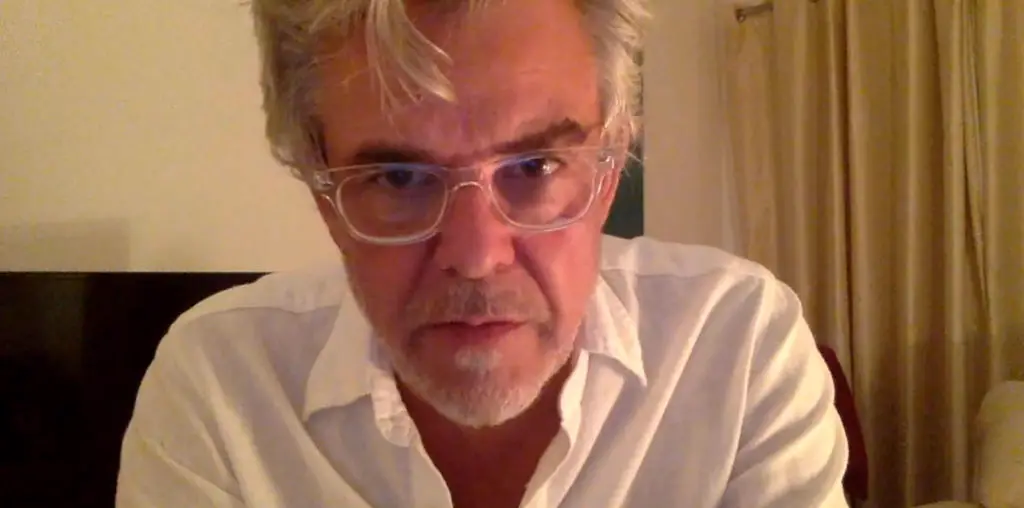
“Jury Duty,” a remake of Georges Lautner‘s 1962 “Le Septième Juré,” is a divisive film – an intricate Hitchcockian thriller to some, while it seems too mainstream to others. I had trouble relating to the second argument; if all mainstream thrillers were as briskly paced, carefully constructed, and convincingly performed as “Jury Duty” is, then the mainstream in general would be a lot more interesting.
This French/Belgian film, which screened at the Cleveland International Film Festival, is set in July of 1962, just after the end of Algeria’s successful war of independence from France. The story concerns a pharmacist named Grégoire Duval (Jean-Pierre Darroussin). Duval lives with his wife Geneviève (Isabelle Habiague) in a typical French town, where he is a prominent and respected member of his community. His fishing pal is police capitaine Valard (Pascal Elso). Duval has also been noticed by the chief judge, who can use his influence to grant Duval with further status and respect.
When Duval wanders away from a snoozing Valard during a morning fishing trip, he comes across two lovers quarreling in a country barn. Khader (Lehcen Razzougui), a young Algerian man, flees. The shaken girl (Lucy Flamant as Marianne) proves captivating to Duval. It is not clear if Duval intends to rape the girl, but clearly he is behaving poorly. Marianne resists Duval’s advances, and as their struggle spins out of control, Duval ends up inadvertently killing the poor girl. Remorseful and confused by what seems to be behavior atypical for him, he returns to the still-snoozing Valard, where he realizes that there are no witnesses and that he can get away with the crime.
Rural towns being what they are, news spreads quickly. It turns out that the girl was the town tramp (even Duval’s teenage rockabilly son has had her), and a farmer saw Khader fleeing the scene of the crime. Seems to be a cut-and-dry case, wtih Duval apparently off the hook. However, when the Algerian boy comes up for trial, Duval is selected for jury duty, and will have to convict the innocent lad.
Hence the legitimate comparisons to Hitchcock. Duval has committed a murder, and now he must sit on the jury as another man is tried for his crime. As he weasels out of one tight situation after another, his conscience gets the better of him, and he strives to find the Algerian innocent without implicating himself. But, we all know that in the end, there can be no escape for the guilty Duval. This is a quintessential Hitchcockian plot device: a story revolving around a protagonist whom the audience likes, but knows is guilty. Tension is ratcheted up as the audience wonders exactly how this man’s guilt will inevitably be discovered. “What” will happen is a foregone conclusion; the suspense is all in the “how.” Even more so, “the wrong guy is accused of the murder and must clear his name” is well-trod ground for Hitch; in the case of “Jury Duty,” however, the killer develops a conscience, which adds a unique layer to what might otherwise be a tired plot.
There is also an interesting undercurrent of commentary on racism here. All of the most prominent members of society are ready to lynch Khader without question, just because he is a young Algerian with a (rather minor) criminal record. His guilt is never in question; the trial is just a formality. The French pride has recently been wounded by their defeat at the hands of one of their colonies; thus, Khader is a bit of trash to be disposed of. It is only Duval’s persistence in playing the good and conscientious juror (with a secret ulterior motive, of course) that keeps Khader from hanging. The police chief, the judge, Duval’s manipulative wife, and the other members of society have no conscience to speak of. They all have selfish motivations for wanting to see Khader hang (Valard says, “Order is more important than truth”). But it is Duval’s conscience that proves to be his own undoing.
Paradoxically, he is both the killer and the story’s only ethical character. Just as we root for him, and want to see this man get away with murder (again, just like some Hitchcock characters), we know he won’t. We discover more about his past, and when we find out that this is not his first crime, we know that the hammer must fall. When even Duval’s pal, the police chief, won’t risk disrupting the status quo to see justice served, Duval must become his own judge and jury. Duval is the only person who will convict Duval.
“Jury Duty” is without weak performances. Jean-Pierre Darroussin balances a tightly concealed inner rage under a quiet exterior, and handles his nervous fear with skill. As the pressure builds, his nervous manner – and to a degree his physical appearance – remind me of Ian Holm’s twitchy administrator in Terry Gilliam’s “Brazil”. Director Edouard Niermans balances suspense and occasional comedy well. If the courtroom scenes drag a bit, and if Duval’s hobby of repairing broken antique dolls seems obvious or trite, these are mere nitpicks; this film is solidly built and entertaining.
